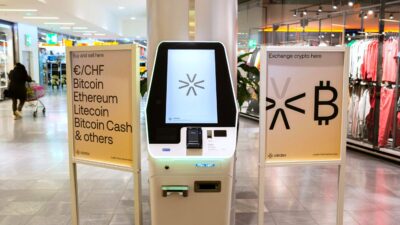Emerging Markets Are Heating Up. Here’s What It Means for US Investors
Stocks in rapidly emerging markets have been outperforming their so-called developed counterparts due, in part, to a depreciating US dollar.

Sign up for exclusive news and analysis of the rapidly evolving ETF landscape.
They aren’t called emerging markets for nothing.
Emerging market equities are booming, and for investors, it raises a familiar question: Is this the time to double down on developing economies? The MSCI Emerging Markets Index, a compendium of stocks in 25 of the fastest-growing countries, is expected to grow 15% in the next year, and analysts predict a 10-year annualized return of 11% for emerging market stocks, according to Paul Arnold, global head of multi-asset research at Morningstar. Some noteworthy markets include Latin America, which had a 10-year return of 12.3%, led by Brazil, he added. China, which holds more than a quarter of the MSCI Emerging Markets Index, also rallied in 2024. But Arnold said caution is key.
“There is increasing geopolitical risk and anti-globalization sentiment that poses unique risks to EM forecasts,” Arnold said. “While the reward-for-risk is certainly attractive, it’s not a free lunch.”
What’s the Dollar Got to Do With It?
Part of the reason for recent rallies is the relative underperformance of the US dollar. The greenback has been sliding steadily since January. Over the past year, the US Dollar Index value has decreased by 3.56%, according to TradingEconomics, giving international investors more bang for their buck when investing in US equities. Another factor driving performance has been local monetary policy decisions, as developing countries’ rate-cutting cycles often started sooner than their developed-market counterparts.
The Trump administration’s recent pressure on the Federal Reserve to lower interest rates has also strengthened the appeal of emerging markets, said Brent Coggins, chief investment officer at Triad Wealth Partners. “Generally, emerging market central banks tend to follow the Fed,” Coggins said. “Part of the reason the US dollar has depreciated since January is not so much because of Fed policy, but because of the administration.”
Some high-performing emerging markets ETFs include:
- The iShares Core MSCI Emerging Markets ETF (IEMG), which is up 20% year-to-date.
- Vanguard’s FTSE Emerging Markets ETF (VWO), which is up 17.46%.
- The SPDR Portfolio Emerging Markets ETF (SPEM), which is up 17.2% YTD.
Long-Term Tailwinds. Despite ongoing geopolitical conflict and potential risks, Coggins said the long-term outlook for emerging markets is promising because of continued dollar depreciation and growth rates in emerging markets that are generally above their developed counterparts. But they should never occupy more than a modest overweight because of expected retracement in global equity markets before the end of the year, he added. “We are currently in ‘watch-and-wait’ mode,” Coggins said.











